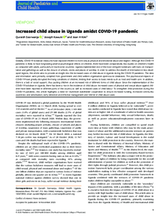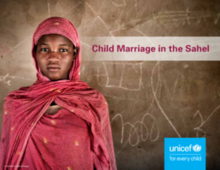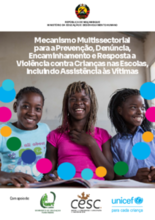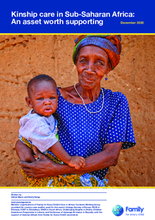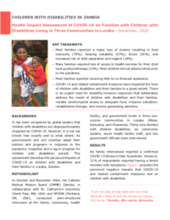Displaying 361 - 370 of 1622
This study assessed educational opportunities and the support available to orphans and vulnerable children (OVC) in Bagamoyo District to determine socioeconomic and psychological factors that limit access to education.
The overall aim of the training programme is t
In order to address the dearth of information in less developed regions, this article aims to provide an insight into the increased cases of child abuse in Uganda during the COVID‐19 pandemic.
This global webinar will delve into the challenges, emerging research from Kenya, and practical country examples from Mozambique, Tajikistan and Peru. The webinar will highlight how children with developmental delays and disabilities can have the best chance to not only survive, but also thrive.
This brochure from UNICEF provides an overview of child marriage in the Sahel, a region spanning the northern portion of sub-Saharan Africa.
A Constituição da República de Moçambique consagra a educação como um direito e dever fundamental de cada criança, que deve ser oferecida num ambiente seguro, propiciando a aprendizagem.
This paper argues that kinship care – the care of children by relatives or friends of the family – represents the greatest resource available for meeting the needs of girls and boys who are orphaned or otherwise live apart from their parents.
Catholic Medical Mission Board Zambia (CMMB), SPOON, and St. Catherine's University conducted this Health Impact Assessment (HIA) in Lusaka Province, Zambia, to understand the disparate impact that COVID-19 and the containment measures had on children with disabilities and their families. his two-phased assessment is designed to gather evidence about the impact through seven domains: COVID-19 knowledge and practices, food consumption, housing and livelihood, child safety and risk of separation, child health and wellness, parental and child stress, and education.
This webinar heard from three of Family for Every Child's member organisations about their programmes to both integrate and reintegrate children on the move.
This article from BBC News tells the story of "vulnerable women [who] are being preyed on in Nairobi to feed a thriving black market for babies."


